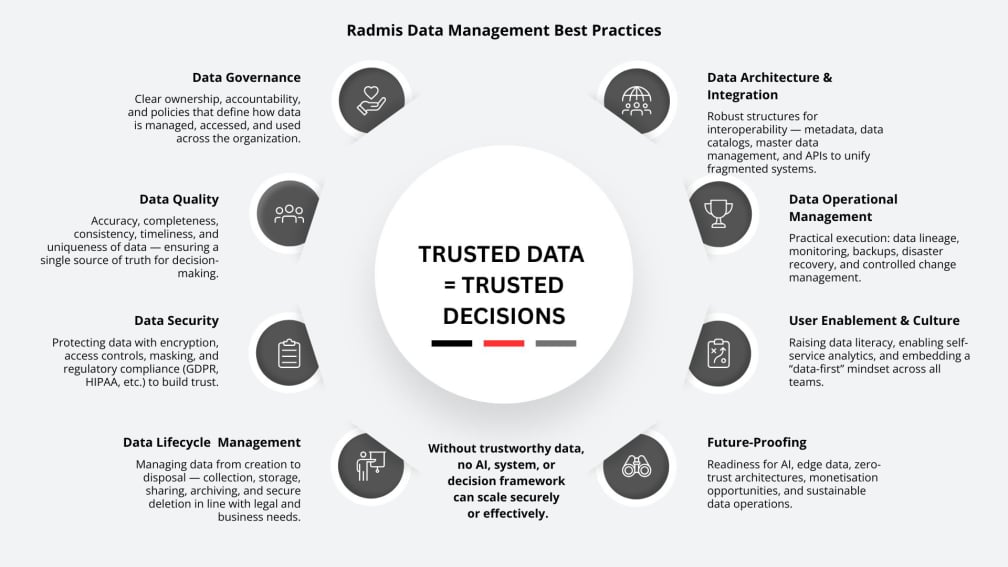
🧭 First Principles: What “Good Data” Really Means
Instead of getting lost in acronyms (ML, RPA, LLM, etc.), let’s return to first principles:
✅ Accuracy – Is it real, verified, up-to-date?
✅ Lineage – Do we know where it came from and who touched it?
✅ Accessibility – Can the right people access it, when they need it?
✅ Security – Is it encrypted, partitioned, and auditable?
✅ Context – Is it interpretable by both machines and humans?
Radmis bakes these into every platform — from rapid prototypes to full-scale national deployments.